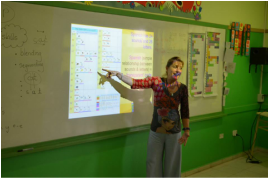Why children fail to read
‘’We have an opportunity before us, not just in medicine but in virtually any endeavour. Even the most expert among us can gain from searching out the patterns of mistakes and failures and putting a few checks in place. But will we do it? Are we ready to grab onto the idea? It is far from clear.’’ (Atul Gawande: The Checklist Manifesto – How to get things right)
The internationally acclaimed surgeon Atul Gawande said that he was in the ‘disturbance business’. His riveting 2014 Reith Lectures, drew upon detailed case histories as he explored such disturbing issues as: ‘Why doctors fail’ despite the track record of astonishing success of the medical profession.
Much like medicine, education is a ‘person-to–person’ service subject to human fallibility and to human ingenuity for solving problems: success is won by learning from our mistakes. Both professions look to research for solutions. They also rely on knowledgeable and skilled practitioners to make sure that decisions are ‘evidence -based’, and who are capable of making sound judgements when faced with the hard question: ‘what should we do when research is inconclusive, evidence is lacking and doing nothing is not an option?’ From the standpoint of teaching primary children with dyslexia and reading difficulties, this paper explores a small corner of what these two highly valued, life-changing endeavours might learn from each other.
While the quip that ‘Dyslexia is like Marmite, you either love it or hate it,’ may be true it does not help to resolve the debate on why some children have far more serious difficulties learning to read than others. We know for sure that Marmite exists. ‘Dyslexia’, however, continues to come under fire as a myth. At its unkindest, this myth portrays dyslexia as an expensive invention to ease the pain of largely but not only middle class parents who cannot bear to have their child thought of as incapable of learning to read for reasons of low intelligence, idleness, or both. What we can be sure of is that the deep anxiety suffered by parents and children when these stubborn reading difficulties persist is most certainly real and not imagined.
Labelling children to place them into fixed categories is always risky and calls for a separate discussion. Meanwhile, this debate has at least highlighted the question of how, so-called, ‘within the child’, inherited characteristics associated with dyslexia might be disentangled from reading difficulties associated with environmental factors ‘outside the child’, such as, poor quality teaching, weaknesses in parenting, disadvantageous socio-economic circumstances, or a sticky mix of all these conditions that obstruct learning to read. The hardly surprising consensus from research seems to be that both environmental and genetic factors influence reading ability. Further, where ‘genes were strongly implicated, it was more likely that the reading problem would be accompanied by broader difficulties with oral language …’, [1]
‘Learn to read and read to learn’ is a familiar slogan worthy of a T-shirt. It encapsulates the obvious truth that the goal of reading is not only to sound out but also to understand the meaning of the words on the page. Those children who reach the expected standard in English at the end of their primary education have attained a good level of language comprehension as well as fluent, accurate word reading. Our national tests assess both attributes. The tests also allow us to assemble a picture of how well children spell and write and thus convey meaning to others. Another useful slogan is, ‘If they can’t say it they can’t write it.’ This reminds us of the importance of developing the spoken word and attentive listening, thereby enriching children’s vocabulary so that they have a good stock of words on which to draw.
Defining and getting to grips with the reading problems we are trying to fix are not about ‘blaming’ children, teachers, parents or poverty. Rather, we should start from a picture that is more reliable than dubious headlines about falling standards of reading in England.
According to the Government’s latest statistics [2], the great majority of children in England (nearly 90%) now learn to read to the standard expected of them by the age of eleven: ‘the 2014 figure for level 4 is the highest ever.’ This was far from the case in 1997 when only 69% did so. Should we be content with that rate of progress? The answer is no. We must strive for more because the figures mask patterns of serious under-achievement by vulnerable minority groups. Moreover, some schools in the most unpromising circumstances demonstrate that more is achievable, hence a fair judgement on the state of play might be: so far so good but not yet good enough.
To what might we attribute the rising trend in reading standards? At least four elements have come together to make a positive impact on children’s progress. First, there has been a powerful political and professional drive to prioritise and strengthen literacy, especially through the systematic teaching of reading in primary schools, and in the training of teachers. Secondly, this momentum has been backed by an unprecedented growth of good commercial and government-funded resources for teaching reading, with due attention to phonic work designed to make sure that children understand how the alphabet works for reading and writing. Thirdly, there has been a spectacular growth of excellent children’s literature by our world-class authors. Finally, the last decade or so has seen advances from research, for example, in neuroscience and cognitive psychology that have given us a better understanding of dyslexia, reading disorders and how the brain learns to read. It is often said that learning to read is a complex and difficult task but it is often forgotten that the brain is a complex and highly adaptable endowment that is well-capable of coping with that task in the great majority of children by the age of seven.
Because it is teachers whose knowledge and skills harness these resources to best effect for each child, we are told repeatedly that no education system can exceed the quality of its teachers. In recent years, someone coined the term ‘instructional casualties’ to describe a broad swathe of children who struggle to read because the quality of teaching they receive is simply not good enough, for long enough, for them to become fluent readers. Attaching percentages to the incidence of dyslexia, as factors within the child, compared to instructional failure, as weaknesses in teaching, is far from a precise science. However, it is safe to say that more children fetch up in the latter than in the former category. Moreover, overcoming instructional failure is within the control of the school whereas other factors, such as parenting and background conditions, though amenable to influence by the school, are much less so.
This era of ‘self-improving’ schools has thrown into sharp relief the urgency of strengthening the quality of teaching based on robust evidence of how successful learning is achieved. It is hardly surprising therefore that self-improving teachers are at the heart of self-improving schools. Acceptance of the virtue of reflective, self-improvement is a no-brainer. It should be an ethical principle which applies to all those who provide, and those who provide for, education, including teachers, school leaders and governors, as well as the recipients of education, that is to say, the pupils themselves. Willingness to ask: ‘What do I need to do to improve?’ is a positive and courageous acknowledgement of our ‘necessary fallibility’, irrespective of whether we are leading-edge surgeons or leading-edge teachers. For pupils, too, we ought to foster a strong ‘can do’ attitude and an appetite for self-improvement through which they learn to teach themselves worthwhile things.
Further, schools like hospitals know full well that there is no escape from professional accountability. OFSTED style inspections and published performance data, for example, are now common to both services. Where schools achieve an outstanding OFSTED report and high national test results parents beat a path to their door in pursuit of a place for their child. Fail badly on these measures and heads will most likely roll, or resign. Within the context of accountability, recent statutory requirements, such as, the introduction of Education, Health and Care Assessments and plans which focus upon how well schools meet the needs of children with learning difficulties have been thrown into sharp relief and somewhat resemble Gawande’s enlightened idea of a safe-guarding checklist.
Anyone who has spent time working on the frontline, or as a recipient, of either of these two services will quickly conclude that lack of time to do the job well is often, in itself, a serious problem that bears upon the twin concerns raised by Gawande, notably, lack of professional knowledge and ‘ineptitude’: the latter being a failure to apply knowledge effectively.
The title of the memorable ‘Rag Trade’ TV series: ‘Never mind the quality feel the width’ might well describe the curriculum prior to its recent revisions. Unwittingly expanding the curriculum, under the banner of ‘breadth and balance’, has been a besetting sin of curriculum reviews. In consequence, slimming down the curriculum to make it more manageable and resistant to overload have been unmet goals of earlier reforms. Has the new National Curriculum and its assessment succeeded in meeting these goals where earlier attempts have failed? It seems the jury is still out. But the issue should be kept under review not least because of the heightened risk of failure that lack of time presents for those pupils who often need more regular, skilled teaching to become literate. Numeracy, too, should be held up to the same light.
Whatever else they do, primary teachers know full well that it is crucial to induct pupils into the symbolic system of language in its various manifestations because: ‘Language is the core symbolic system underpinning human cognitive activity, vastly increasing the efficiency of memory, reasoning and problem solving. Symbolic systems (language, writing, numbers, pictures, maps) enable the individual to develop a cognitive system that goes beyond the constraints of biology…’ [3]
Reading music, too, requires understanding its code, as indeed does computing where ‘coding’ is now embedded in the new primary curriculum. Making sufficient time for children to learn these various codes is a sizeable challenge for teachers and schools.
As the great edifice of inspection, assessment and testing, curriculum expansion and laudable attempts to co-ordinate services goes up, arguably, outstripping that of our allegedly more successful international counterparts, we may have forgotten that school time is finite. If so, we must find ways to prioritise the essential from the desirable and do less to achieve more. Though easier said than done, this suggests, that accountability for children’s success should extend beyond the frontline in schools.
For ‘instructional casualties’, as for ‘dyslexic casualties’, early identification through comparison with their typically developing peers, combined with good assessments, such as, the recently introduced ‘phonics check’ are invaluable starting points for teaching on a regular, daily basis and from which to plan for continuity. Further, one–to–one teaching interventions for reading need to be ‘quality assured’ and mesh with the rest of the curriculum to make sure that the total experience is coherent from the standpoint of the child.
One of the best recent summations on dyslexia is provided by Professor Dorothy Bishop [1]:
‘A genetic aetiology does not mean a condition is untreatable
Could genetic findings be useful in intervention? All too often it is assumed that if genetic effects are found, the child will be untreatable. Yet, high heritability does not imply immutability: it implies that the range of environmental experiences that is usually encountered in everyday life does not have much impact on a trait, but says nothing about potential impact of novel environmental experiences. When, for instance, a child has the heritable myopia, we do not treat them as passive victims of their genetic destiny. Instead, they are given spectacles: an intervention that is out- side the range of normal environmental experiences, but which is tailored to counteract the genetic effect. Similar logic can be applied in the case of dyslexia: if there are genetic variants that affect how children learn, we need to find out how they work to affect brain development and function. That will allow us to develop ways of intervening to over- come the problem—interventions that may need to be different from regular teaching experiences. We are still a long way from knowing how to do this, but genetic information points us towards the right path. It is not helpful to assume that all poor readers are the consequence of poor teaching and that additional or earlier reading instruction will fix the problem. We need studies that examine which kinds of reading instruction are most effective for children at high genetic risk, who often have disproportionate difficulties with aspects of speech sound analysis and associative learning that other children find easy. Genetic research does not lead us to write off children who are poor readers, but rather to recognize that they may need more individualized instruction tailored to their specific needs.’
Dyslexia is not yet well enough understood as an extreme reading disorder for which we have precise solutions. Pretending it is a myth, however, risks burying our heads in the sand and giving up the search.
[1] The interface between genetics and psychology: lessons from developmental dyslexia: D.V. M. Bishop Department of Experimental Psychology, University of Oxford, South Parks Road, Oxford OX1 3UD, UK. Proc. R. Soc. B 282: 20143139. http://dx.doi.org/10.1098/rspb.2014.3139
[2] Department for Education: National curriculum assessments at key stage 2 in England, 2014 (Revised)
[3] Foresight Mental Capital and Wellbeing Project (2008) Jim Rose 01.06.15
Download a PDF of the paper.
















